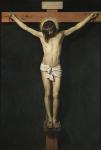-
 SBR PRO
SBR PRO
 Betislands Is Officially Done : Nominated Post
Betislands Is Officially Done : Nominated Post
Originally posted on 12/12/2012:

Originally Posted by
darkhat

orale orale!!!
Dear Forum Icon and hero DarkHat,
Christ describes the essence of true worship during his conversation with the woman at the well (John 4:17ff.). After the Saviour declares the woman's immorality, she perceives that he is a prophet. Therefore, she propounds to him the prominent religious controversy which existed between the Jews and the Samaritans.
Specifically, the dispute was over where to worship. Now, it is true that God had prescribed Jerusalem as the place for public ordinances Â* although that would soon change. But the dispute had degenerated into a focus strictly upon the outward forms of religion. Thus, Christ was confronted with a loaded question Â* the kind frequently spawned by religious controversy.
Jesus responds by placing the dispute within a larger context: the nature of true worship. He notes that there is more to the matter than simply settling a dispute over the proper place for worship. He also points to the approaching changes which would render obsolete the whole debate about the locale for worship.
Outwardly, as to the place for public ordinances, the Jews were right. God had prescribed a pattern of worship which was focused upon Jerusalem. The divine pattern was designed as a witness for all mankind, regarding the right way of salvation. "Salvation is of the Jews," for "unto them were committed the oracles of God" (John 4:22; Rom. 3:22). In this sense, the Jews worshipped what they knew: that is, they adhered to the knowledge of the law as it pertained to the place for divine ordinances. (Herein we are again directed to the importance of revealed religion, as given in the law.) The Samaritans had abandoned the law, and forged their own mongrel religion. (See 2 Kings 17.)
In another manner,Jesus reiterates the importance of God's appointment in religion. "The hour cometh, when ye shall neither in this mountain, nor yet at Jerusalem, worship the Father" (John 4:21). A great change was about to occur, respecting the outward ordinances of worship.At whose direction? Not by man's appointment, but by the appointment of God. He alone is the lawgiver. None may tamper with the pattern which he has established; yet it is the Lord's prerogative to make alterations in conformity with his purposes.



 Reply With Quote
Reply With Quote